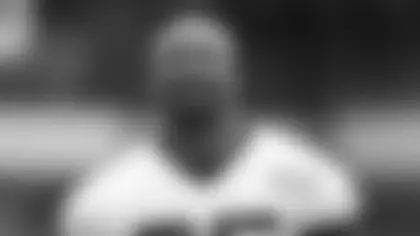In the final buildup to the draft, we're taking our analysis of the draft's prospects one step further. We're making the case for and against 10 of the players and scenarios that are linked to the Browns, who hold the No. 1 and No. 4 picks.
The case for Oklahoma quarterback Baker Mayfield
1. No quarterback experienced more success: No matter where he played, no matter the odds, Mayfield found his way onto the field and thrived during his four seasons of college football. He went from a walk-on to a freshman starter at Texas Tech and then did the same at Oklahoma, where he starred for three seasons. He led the Sooners to the College Football Playoff in 2015 and 2017. He won nearly every game he started. He won the Heisman. He won the Maxwell Award. He won the Davey O'Brien Award. When it comes to this year's quarterback class, Mayfield wins in a runaway when it comes to who's the most accomplished.
2. He's the most accurate: In this three seasons with the Sooners, Mayfield never finished the season with a completion percentage worse than 68 percent. As a senior, he posted a 70.5 completion percentage with just six interceptions. A number of these throws were short and sweet within the confines of Oklahoma's fast-paced spread attack, sure, but Mayfield was just as dangerous on the tougher throws. According to NFL.com, Mayfield completed 53 percent of his throws that traveled more than 21 yards.
3. He's a bona fide leader: QBs come in all shapes and sizes with different personalities. Mayfield makes it clear you know you're getting every ounce of enthusiasm out of him, and it's clearly left an impression on the players he's led to big win after big win. "He is one of my best friends, but an incredible teammate," Oklahoma tight end Mark Andrews said. "Someone that you'll run through a brick wall for and there aren't many people like that. He's firmly. He loves to compete and he loves football. You can't ask for anything else an a teammate. Incredible guy."
The case against Mayfield
1. His measurables are sub-optimal: Simply put, Mayfield will have to be an outlier if he's going to find success in the NFL. Standing a little short of 6-foot-1, Mayfield would immediately become one of the NFL's smallest quarterbacks, putting him at a disadvantage to the taller, long-armed pass rushers that will try to wreak havoc upon him every time the ball is snapped. Browns coach Hue Jackson, while stressing there are always outliers, has said he prefers a quarterback to be 6-foot-2 or taller, and he's not alone. Russell Wilson and Drew Brees have both proven to be those kind of outliers, thriving for years despite falling well short of the prototypical size for the position. Neither, of course, were drafted in the first round.
2. The Big 12's track record? Not ideal: It's been a rough stretch of years for Big 12 quarterbacks looking to make a smooth transition to the NFL -- and the jury's still out on last year's first-round pick, Patrick Mahomes, who will take on the starting duties in Kansas City this season. As NFL.com's Lance Zierlein writes, Mayfield benefited in a big way from the scheme coach Lincoln Riley devised, making a number of his throws to wide open areas. When the pressure increased like it did in the College Football Playoff semifinal against Georgia, Mayfield's accuracy slipped a bit. In the NFL, he'll be making a big transition to a pro-style offense and will be forced to throw his receivers open -- something he simply wasn't asked to do as much in the kind of offense that often sees quarterbacks, whether they'll NFL-caliber or not, put up big numbers.
3. Off-the-field questions: The questions have likely been numerous throughout the pre-draft process, as Mayfield has been tasked to explain himself for an arrest and some questionable on-field antics that may rub some teams the wrong way. Ultimately, it may not hinder his draft stock, but it's one more question mark that sits by his name that does not for the other top quarterbacks. The quarterback position, especially in the NFL, brings on a different set of demands and responsibilities. The spotlight only burns brighter at the professional level, and the repercussions of another mistake would carry a much stronger sting.














